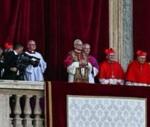You are here
Trump’s alternative ethical universe
Jan 22,2017 - Last updated at Jan 22,2017
From the moment Donald Trump entered the US presidential race, the potential for an unprecedented array of ethics violations, stemming from his global business interests, has been a ticking time bomb, set to detonate on January 20, 2017.
Boom.
Plenty of other liberal democracies have experienced elements of authoritarian leadership, including nepotism, limits on freedom of speech or of the press, overtly discriminatory policies, and the abuse of public office for personal gain.
But the United States has mostly avoided these traps, owing largely to term limits and a reliable system of checks and balances.
Enter Trump.
Upon assuming a powerful position, no effective leader — in government, business or anywhere else — publicly excoriates future staff; lashes out in response to any and all criticism; disparages highly regarded public figures; or refuses to learn about the issues he or she will have to address.
Trump has done all of this and more.
Trump’s transition team sent surveys to the US Department of Energy, seeking the names of employees who have worked on climate-change policy.
He has offered a key White House role to his son-in-law, Jared Kushner.
And he has consistently refused intelligence briefings, dismissed the concerns of the intelligence community about Russian meddling in the election, and even likened the release of information about those concerns to Nazi Germany.
Of course, Trump’s distrust of experts is far from unique nowadays. But using experts’ missteps or uncertainties to justify disregarding facts is irresponsible.
For the US president — a person tasked with serving and protecting people all over the world — it is downright dangerous.
The danger is all the more acute when the president is taking advantage of scepticism about facts to manipulate perceptions and create space for his own unethical behaviour.
Trump has claimed that he will disentangle himself from his business to avoid conflicts of interests, while offering no credible plan for doing so.
Trump’s team has been consistent about little except its insistence on the notion that being powerful is equivalent to being right.
When asked about Trump’s behaviour, Kellyanne Conway, Trump’s campaign manager and now a White House counsellor, replied: “He’s the president-elect, so that’s presidential behaviour.”
Trump himself has responded to questions about his campaign rhetoric with a simple “I won”.
Congressional Republicans seem to be on board with this demagogic approach.
The party’s caucus in the House of Representatives made it its order of business to try to gut an independent ethics committee established in the wake of scandals a decade ago.
The backlash was swift, and it had to back off.
But it may yet try again: Trump criticised the move, but only its timing, and called the ethics committee “unfair”.
The attack on ethics does not end there.
Senate Republicans have pushed forward confirmation hearings for Trump’s Cabinet picks, even though proper vetting and financial disclosures have not yet taken place.
Efforts have been made to counter — or, at least, highlight — the ethics violations that Trump and his team are accumulating.
Walter Shaub, director of the independent Office of Government Ethics, which was established after Watergate, spoke out on the subject. (Trump’s chief of staff responded with a veiled threat, warning the director to “be careful”.)
The Washington Post has created a new team devoted specifically to covering conflicts of interest within the Trump administration and possible violations of the Emoluments Clause of the US Constitution, which prohibits anyone holding public office from accepting money or gifts from foreign officials.
But, for now, Trump and his enablers seem committed to continuing down their current path — an approach that is already weakening America’s moral authority.
While many world leaders are concerned about Trump’s behaviour, many others are probably thinking that they now have tacit permission to do likewise.
Business leaders, too, may conclude that they can flout ethical rules.
This logic, while understandable, is flawed.
Trump will not be US president forever.
Right-wing populist movements like his will eventually tear themselves apart, not least because their leaders are not committed to policies that will actually help their constituents.
On the contrary, Trump and congressional Republicans are moving fast to dismantle the Affordable Care Act — president Barack Obama’s signature healthcare policy — claiming that its as-yet-undefined replacement will maintain the popular elements and drop the unpopular ones.
In reality, this will be impossible.
Those who take advantage of the current ethical fugue for personal or shareholder gain will have to answer for it when the political pendulum swings back to sanity.
So will those who, while not jumping aboard the venality train themselves, hold the doors open for others, by failing to defend ethical standards.
Politicians and businesspeople must now decide whether they will be known as opportunists and enablers or as true leaders, adhering to the ethics and principles that they have publicly espoused.
The World Economic Forum Annual Meeting in Davos, Switzerland, which focused on “responsible and responsive leadership”, presented an early opportunity to draw a line in the sand.
In the future, those who remained on the right side of it will be glad they did.
The writer is CEO of Marcus Venture Consulting. ©Project Syndicate, 2017. www.project-syndicate.org












